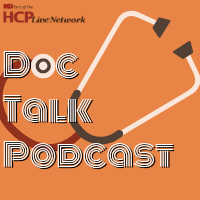Video
Progressing Patient Personalization, Access in Schizophrenia Care
Peter Salgo, MD: What are the emerging drugs for the treatment and management of individuals with schizophrenia?
Mauricio Tohen, MD, DPH, MBA: The drugs that we have available in psychiatry are the only ones available at the moment, and they treat symptoms—they don’t cure. I am hopeful that, within our lifetime, we will have a more personalized medication, such as the targeted cancer therapies. Cancer inhibition and dissolution was not possible 10 to 15 years ago—whereas currently, we have the ability to accurately diagnose and personalize a treatment for patients. In psychiatry we’re going to be there, at some point.
Peter Salgo, MD: What’s in the pipeline right now?
Nneka Jones Tapia, PsyD: Regarding programs, we’ve spoken about some of the cutting-edge management systems that occur in Cook County and Dade, Miami, which correctional institutions and community mental health providers should emulate. These are the model programs that have shown effectiveness.
Peter Salgo, MD: What’s the problem? It sounds like you’ve got a program in Dade County that’s working; it’s not perfect, but it’s serving the functions needed and surpassing those of other communities. Why doesn’t everybody implement these programs?
Judge Steven Leifman: Scale is hard; you need political willpower, leadership, and resources. We’re getting there. We’re trying to teach other communities how to do this, but we have a long way to go.
Peter Salgo, MD: You’re saying you need resources; it’s a silo issue.
Judge Steven Leifman: Yes.
Richard Jackson, MD: Absolutely.
Peter Salgo, MD: I hate silos.
Judge Steven Leifman: Correctional facilities don’t want to hand over their funding to the community mental health system.
Nneka Jones Tapia, PsyD: We have to break the silo. Until then, we won’t reach the point where all people with mental illness are effectively treated in a community setting.
Peter Salgo, MD: That’s not just a mental illness or correctional facility issue—I’ve seen it in hospitals everywhere. We save money on the pharmacy budget. I don’t see the profit and the difference. So over here in the operational area, we’re not going to do it.
Judge Steven Leifman: I am optimistic since after we created this national initiative called the “Judges Psychiatric Leadership Initiative,” which also includes psychiatrists, what we’re finding is that judges are at a wonderful point because, when we invite people to a meeting, they come, whether or not they want to. Contempt is a beautiful thing.
Richard Jackson, MD: What we have to do is encourage judges to ensure the right people are at these meetings, starting to map out the intersection between criminal justice and mental health, and develop a written collaborative agreement that engenders a structural change. We also need to implement the best practices. This is what is required for progression.
Peter Salgo, MD: I sense this is a glacial progress here—that there are some really aggressive communities.
Judge Steven Leifman: Yes. But I see a change.
Peter Salgo, MD: You do?
Judge Steven Leifman: Significant change. In the next 10 years, hopefully, as the medications continue to improve, we will solve most of today’s problems. We cannot afford to continue to operate this way; it’s too expensive, with terrible outcomes. People are finally starting to understand this.
Peter Salgo, MD: What’s in the pipeline for pharmacology?
Richard Jackson, MD: Currently we are looking beyond the dopamine theory of schizophrenia—merely blocking dopamine and dopamine modulation. Instead, we are looking at a variety of other receptor types that affect schizophrenia in the hallucinatory or delusional settings—what we call cognitive function. It’s really a brain and systemic disorder with what we call negative symptoms: this lack of initiative to maintain function. Agents are looking at a variety of receptors, either as adjuncts to what we usually use, or as replacements. We have the first non-dopaminergic agent that was approved for psychosis and Parkinsons.
Peter Salgo, MD: I was struck by the fact that people with schizophrenia suffer from brain degeneration.
Richard Jackson, MD: Yes.
Peter Salgo, MD: And then you told me that if you treat it, you can slow the process or eliminate it.
Richard Jackson, MD: I don’t know if we can. There’s mixed data on brain degeneration, but we can analyze the fluctuation in levels. Any time you have a psychotic episode, you deteriorate and may “bounce up” a bit; but with each succession, you do not bounce up quite as quickly or as high as the previous time. If we can reduce the number of psychotic episodes, you could, hopefully, maintain a level of function for a longer period of time.
Peter Salgo, MD: That does suggest, however, that there is some biological deterioration. The question is, can we prevent it by preventing recurrence?
Mauricio Tohen, MD, DPH, MBA: Absolutely. And, with regard to bipolar disorder, it is clear that a succession of relapses causes the illness to become more chronic; it is important to prevent these relapses.
Richard Jackson, MD: And the same with schizophrenia.
Peter Salgo, MD: That’s a powerful argument for maintaining a smooth, continuous therapeutic milieu as opposed to episodic treatment.
Judge Steven Leifman: And not changing a medication if it’s working.
Mauricio Tohen, MD, DPH, MBA: Medications won’t do it by themselves. We need a better system to treat our patients.
Transcript edited for clarity.





